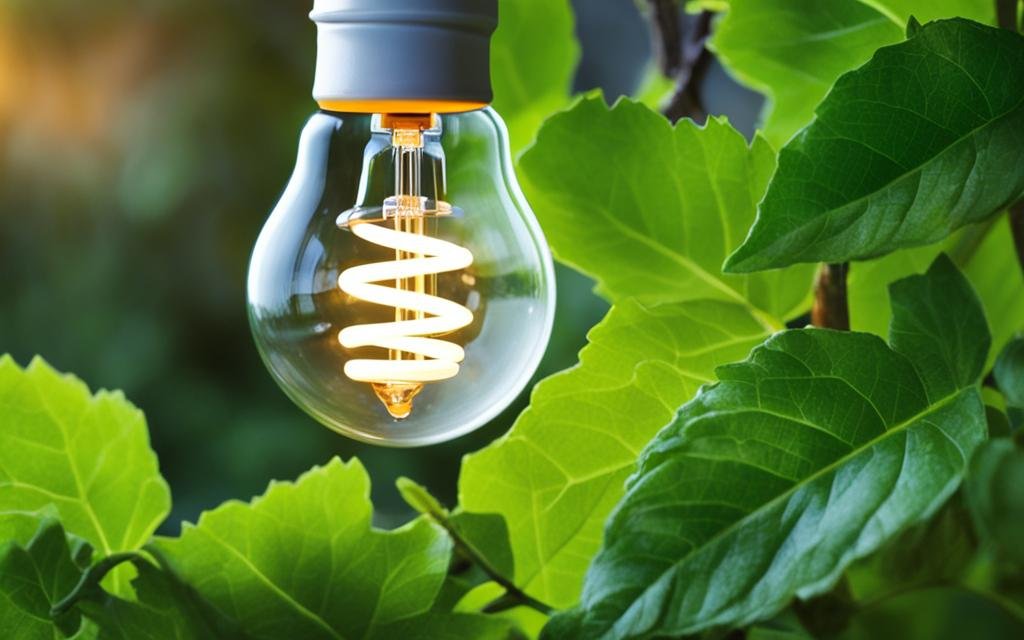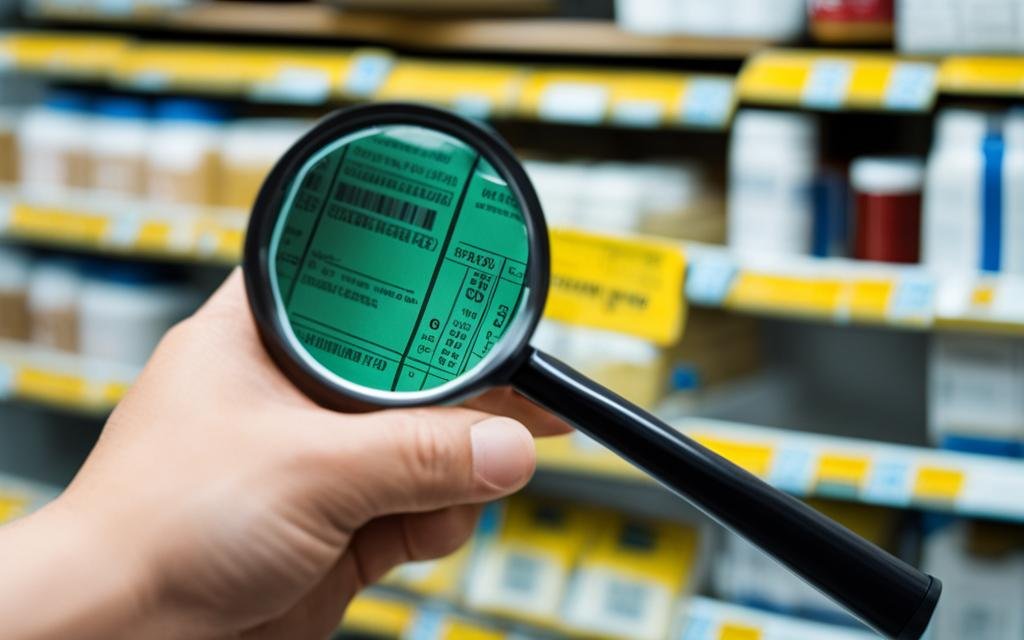Heating and cooling your home can consume a significant amount of energy, resulting in hefty utility bills. However, there are effective strategies you can implement to make your home more energy-efficient and reduce your heating and cooling costs. By investing in energy-efficient HVAC systems, utilizing programmable thermostats, improving insulation and weatherstripping, considering solar heating and cooling options, preventing air leakage, conducting energy audits, and performing regular HVAC maintenance, you can achieve substantial savings on your home heating and cooling expenses.
Key Takeaways:
- Invest in energy-efficient HVAC systems to reduce your energy consumption and lower your heating and cooling costs.
- Utilize programmable thermostats to optimize temperature settings and save energy.
- Improve insulation and weatherstripping to prevent drafts and retain heating or cooling efforts.
- Consider solar heating and cooling options to harness renewable energy and reduce reliance on traditional power sources.
- Prevent air leakage by sealing gaps and cracks, ensuring efficient heating and cooling.
Insider Tip: Planning your next purchase? Save on essential gear like power stations with Bluetti promo codes.
Shopping for Energy Efficiency
When shopping for new heating and air conditioning (HVAC) equipment and systems, it’s important to consider energy efficiency in addition to price. By choosing energy-efficient HVAC systems, you can reduce your energy consumption and lower your heating and cooling costs.
One important tool to help you make informed decisions is the EnergyGuide label. Look for products that display this label, as it provides valuable information on energy usage compared to similar models. The label will give you an estimate of how much energy the appliance or system uses, as well as an estimate of the annual operating costs.
In addition to the EnergyGuide label, you should also look for the ENERGY STAR logo. This logo indicates that the product meets specific energy efficiency guidelines set by the Environmental Protection Agency and Department of Energy. ENERGY STAR certified products are designed to use less energy without sacrificing performance or features.

When purchasing an HVAC system, be sure to check if it is ENERGY STAR certified. This certification ensures that you are getting an energy-efficient system that will help you save on your utility bills while reducing your environmental impact.
It’s also important to consider the size and capacity of the HVAC system. An oversized system will not only cost more upfront, but it can also lead to inefficient operation and increased energy consumption. Consult with a professional HVAC contractor to determine the right size system for your home.
By taking the time to research and choose energy-efficient HVAC systems, you can make a smart investment that will provide long-term savings on your home heating and cooling costs.
Other Ways To Save on Energy
In addition to purchasing energy-efficient HVAC systems, there are several other ways you can save on energy and reduce your home heating and cooling bills. By implementing these energy-saving tips and techniques, you can make your home more efficient and lower your utility costs.
1. Conduct a Home Energy Assessment
A home energy assessment is a comprehensive evaluation of your home’s energy usage. It can help you identify areas where your home is wasting energy and provide recommendations for improvement. Consider hiring a professional energy auditor to perform a detailed assessment and receive expert advice on how to make your home more energy-efficient.
2. Prevent Air Leakage
Air leaks in your home can lead to drafts and energy loss. To prevent air leakage, seal any gaps or cracks around windows, doors, and utility penetrations. Weatherstripping and caulking are effective methods to improve insulation and prevent unwanted air infiltration. By sealing air leaks, you can ensure that your heating and cooling efforts are not wasted.
3. Improve Insulation
Inadequate insulation can result in significant energy loss. Insulating your home properly can help maintain a comfortable indoor temperature and reduce the workload on your HVAC system. Consider adding insulation to your attic, walls, and floors to minimize heat transfer and improve energy efficiency.
4. Utilize Programmable Thermostats
Programmable thermostats allow you to set specific temperature schedules for different times of the day. By using programmable thermostats, you can optimize your heating and cooling settings based on your daily routines. This can help reduce energy consumption when you are away from home or asleep, resulting in lower utility bills.
5. Choose Energy-Efficient Appliances
When purchasing new appliances, opt for energy-efficient models that are ENERGY STAR certified. These appliances are designed to consume less energy while maintaining optimal performance. Upgrading to energy-efficient appliances can lead to significant energy savings over time.
6. Optimize Lighting and Electronics
Switching to energy-efficient lighting options, such as LED bulbs, can significantly reduce your electricity usage. LED bulbs consume less energy and have a longer lifespan compared to traditional incandescent bulbs. Additionally, unplug electronics and devices when they are not in use to prevent unnecessary energy consumption.
Implementing these energy-saving tips can help you lower your home heating and cooling bills while minimizing your environmental footprint. Making small changes in your energy usage can add up to significant savings over time.

Spot and Avoid Scammy Products and Services
When searching for energy-saving products or services, it’s important to be cautious and avoid scams. Here are some key points to keep in mind:
1. Do thorough research and read reviews: Before making any purchases, take the time to research the company or product and read reviews from other customers. This will help you determine if the company or product is legitimate and reputable.
2. Be wary of high-pressure sales tactics: Scammers often use high-pressure sales tactics to rush you into making a decision. Take your time and don’t feel pressured to make a purchase on the spot.
3. Watch out for door-to-door solicitations: Be cautious when approached by salespeople who come to your door offering energy-saving products or services. Scammers may try to take advantage of your trust or lack of information.
4. Get offers and discounts in writing: Before accepting any deals or signing contracts, make sure to get all offers, discounts, and agreements in writing. This will help protect you from false promises or changes to the terms later on.
5. Beware of utility scams: Scammers may pose as utility providers and request immediate payment using gift cards, cryptocurrencies, or wire transfers. Legitimate utility providers typically have secure methods of payment and will not ask for payment in these forms. If you encounter any suspicious activity, report it to the FTC.

For More Information
For more information on saving energy in your home and reducing heating and cooling costs, there are several resources available. Here are some options:
Energy-saving Websites
Visit energy.gov/energysaver and energystar.gov for comprehensive information on energy-saving strategies and products. These websites provide valuable tips and guidance on how to make your home more energy-efficient, from insulation techniques to choosing energy-saving appliances. Take advantage of the resources provided to optimize your energy usage and savings.
State Energy Offices
State energy offices are valuable sources of information when it comes to energy efficiency. They can provide you with specific programs and incentives available in your state. Reach out to your state energy office to learn about energy efficiency initiatives, rebates, and financing options that can help you save on your heating and cooling expenses.
Local Utility Companies
Your local utility companies can also offer assistance and resources for energy-saving initiatives. They may have programs or services that can help you identify energy-efficient solutions and provide you with expert advice. Contact your utility company to inquire about energy audits, rebate programs, and other energy-saving opportunities that can contribute to lower utility bills.
Additional Resources
In addition to the above options, there are numerous other resources available to help you save on energy and reduce your heating and cooling costs. Consider researching energy-saving organizations, non-profit groups, and consumer websites that provide valuable tips and information. These resources can offer insights and recommendations on energy-efficient products, technologies, and practices that can make a difference in your energy consumption and savings.
By utilizing these additional resources, such as energy-saving websites, state energy offices, and local utility companies, you can access valuable information and guidance to further optimize your energy usage and save money on your home heating and cooling expenses.
Conclusion
By implementing energy-efficient strategies such as investing in energy-efficient HVAC systems, utilizing programmable thermostats, improving insulation and weatherstripping, considering solar heating and cooling options, preventing air leakage, conducting energy audits, and performing regular HVAC maintenance, you can achieve significant savings on your home heating and cooling bills.
Additionally, by being vigilant and avoiding scams, researching and reviewing products and services, and utilizing available resources for more information, you can optimize your energy usage and maximize your cost savings. Remember, small changes and investments in energy efficiency can make a big difference in your overall utility expenses.
Take control of your home’s energy consumption and start saving on your heating and cooling costs today. By implementing these energy-efficient strategies, you can lower your utility bills while simultaneously reducing your environmental impact. With a little effort and awareness, you can enjoy a comfortable home while saving money and contributing to a greener future.
FAQ
What are some energy-efficient strategies to save on home heating and cooling?
Some energy-efficient strategies include investing in energy-efficient HVAC systems, utilizing programmable thermostats, improving insulation and weatherstripping, considering solar heating and cooling options, preventing air leakage, conducting energy audits, and performing regular HVAC maintenance.
How can I shop for energy efficiency when looking for heating and air conditioning equipment?
When shopping for heating and air conditioning equipment, look for products with the EnergyGuide label, which provides information on energy usage compared to similar models. Also, look for the ENERGY STAR logo, which indicates that the product meets specific energy efficiency guidelines set by the Environmental Protection Agency and Department of Energy.
What are some other ways to save on energy and reduce home heating and cooling bills?
Other ways to save on energy include conducting a home energy assessment to identify areas of energy waste, sealing air leaks, improving insulation, utilizing programmable thermostats, energy-efficient appliances, lighting, and electronics.
How can I spot and avoid scams when shopping for energy-saving products or services?
To spot and avoid scams, do thorough research and read reviews before making any purchases. Be cautious of high-pressure sales tactics and door-to-door solicitations. Get offers and discounts in writing before accepting deals. Beware of utility scams and never make payments with gift cards, cryptocurrencies, or wire transfers to companies claiming to be utility providers.
Where can I find more information on saving energy and reducing heating and cooling costs?
Visit energy.gov/energysaver and energystar.gov for comprehensive information on energy-saving strategies and products. Reach out to your state energy offices and local utility companies for additional resources and assistance with energy efficiency programs or incentives.

